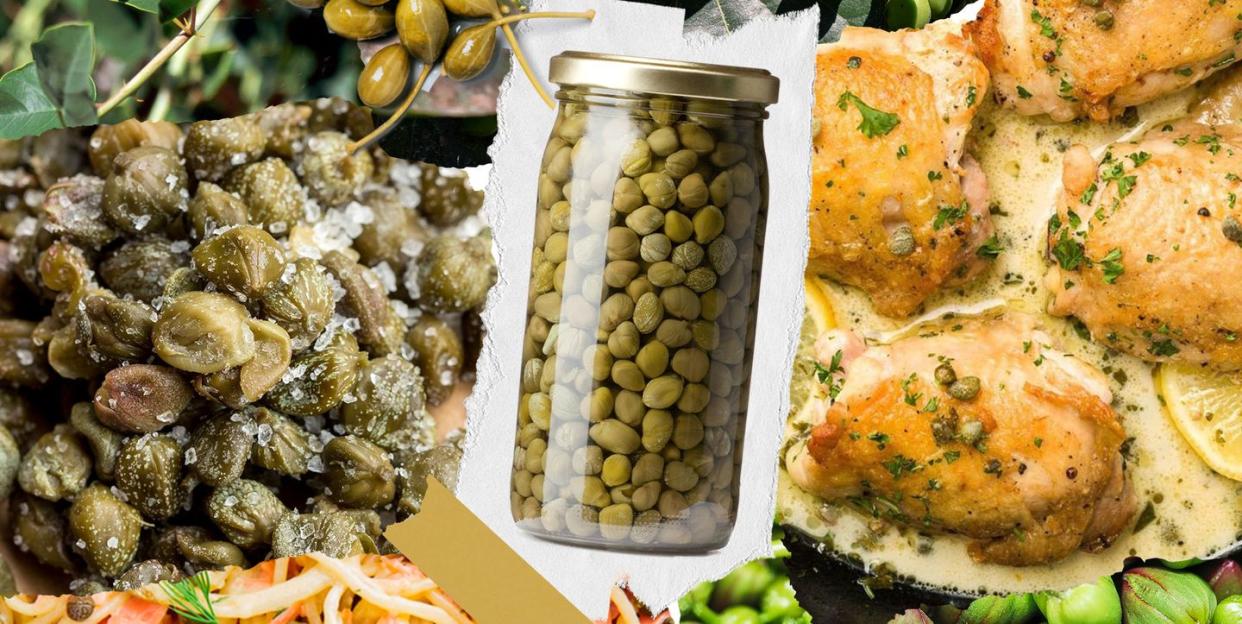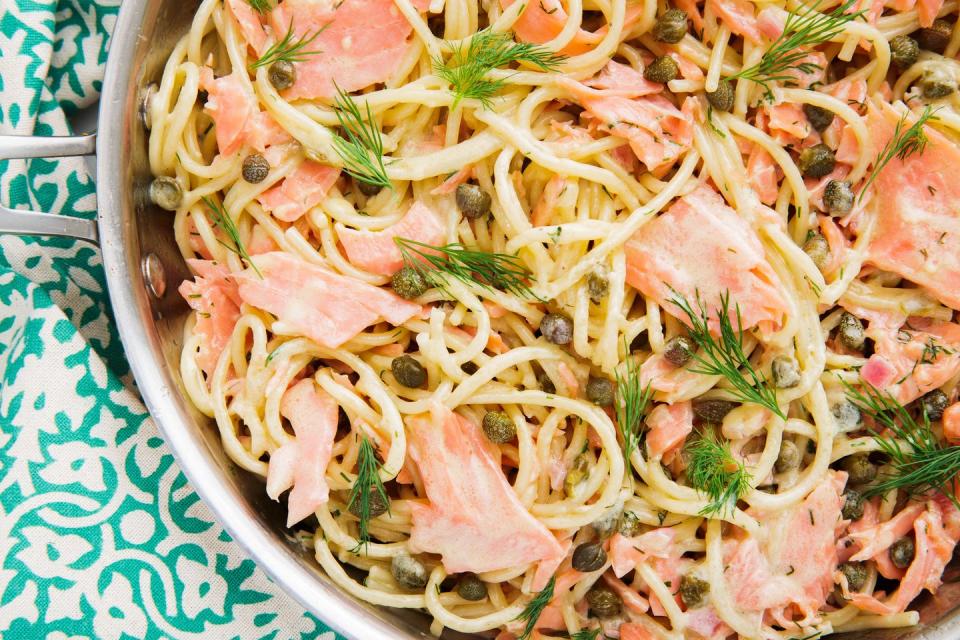Once You Try Capers In A Dirty Martini, You'll Never Go Back To Olives

For people who love briny, salty pops of flavor, capers are a no-brainer. But what exactly are those little green things anyway? Below, we break it allll down.
What Are Capers?
Capers are the green, unripened flower buds of the caper bush, also known as Flinders rose. Native to the Mediterranean but now grown in many countries, the bush does best in semiarid or arid climates. Sold by their size, capers range from 7mm or less, called non-pareils, to 14mm+, or grusas. Small capers are firm in texture and less aromatic than their more mature counterparts, which are more tender and have a stronger flavor. Once picked, they are dried and brined or packed in salt, bringing out their lemony, slightly floral green olive-like flavor.
Wondering where the larger, teardrop-shaped caper berries come in? Those are actually the fruit of the caper bush—the result of a bud left intact and allowed to develop into a flower, and eventually fruit. Caper berries can be pickled and used like pickles or olives. (Try them on your next Bloody Mary!)
Culinary Uses
Popular in Mediterranean cuisines but used worldwide, capers bring a pop of briny, funky brightness to savory dishes like the ever-popular Chicken Piccata. They're best added near the end of cooking, like fresh herbs, to maintain their flavor and snappy texture.
Like chopped pickles or lemon juice, capers can cut through richness in dishes with lots of fatty ingredients. Try stirring in a couple tablespoons of roughly chopped capers into tuna salad or the yolk mixture in your deviled eggs. They can also be fried and used to garnish dishes for a satisfying salty crunch.
Capers also pair beautifully with seafood, like with lox on a bagel, or in this Smoked Salmon Pasta.

Even the caper brine can be of use—try it in place of olive juice in your dirty martini, add some to mayo-based dressings in place of vinegar or citrus juice, or use it to pickle other raw veggies.
If your capers are salt-packed, rinsing is optional. They are very salty, so if you're not rinsing, hold off on salting your dish until you're able to taste with the capers. Alternatively, you can rinse for 1 to 2 minutes to remove the outer salt, or soak the capers in water in the refrigerator for 3 to 4 hours to remove even more salt.
Storage
Keep brined capers submerged in their brine, refrigerated in an airtight container. Salt-packed capers need no refrigeration—just an airtight container and a cool, dry spot in your pantry.
You Might Also Like

